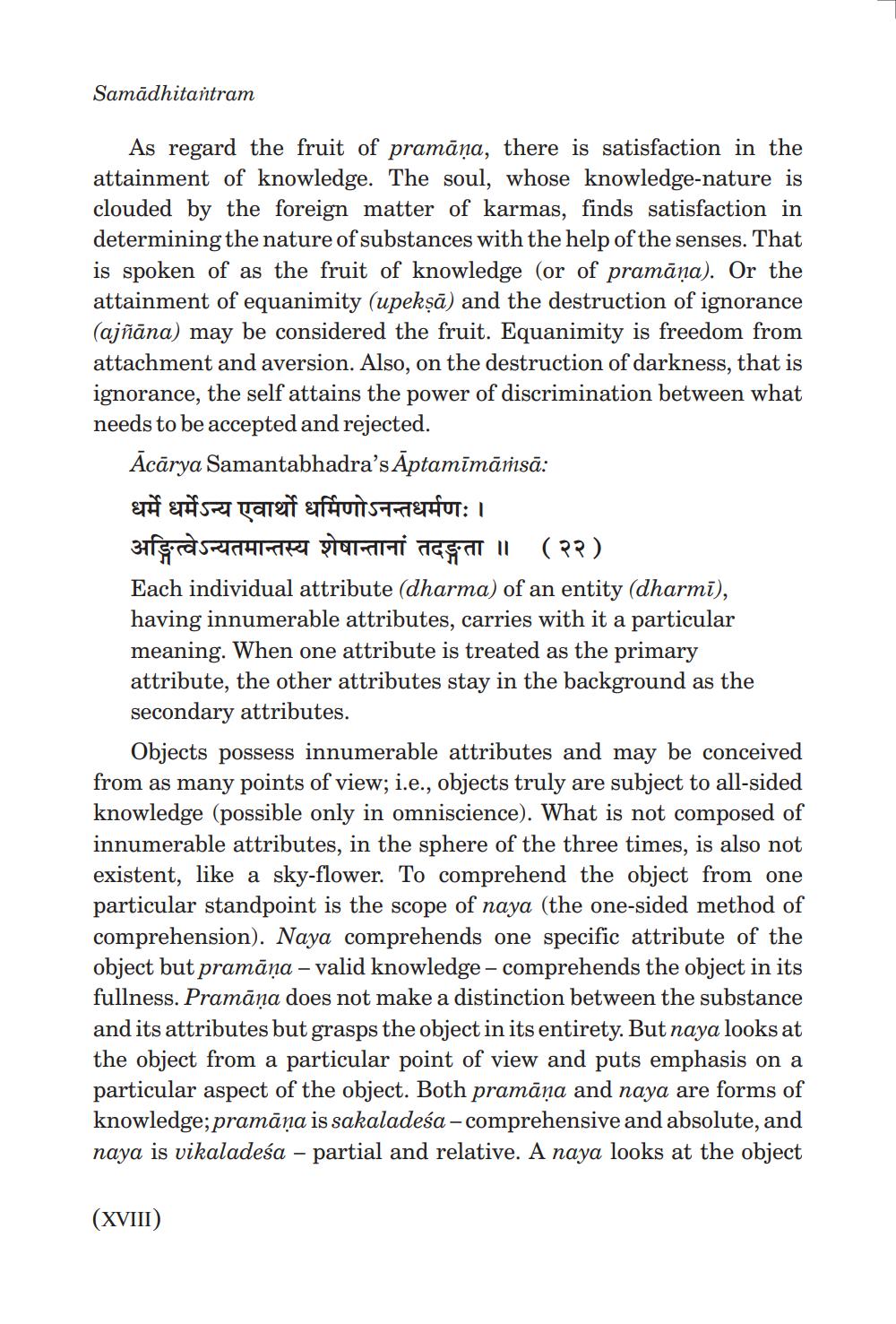________________
Samādhitantram
As regard the fruit of pramāņa, there is satisfaction in the attainment of knowledge. The soul, whose knowledge-nature is clouded by the foreign matter of karmas, finds satisfaction in determining the nature of substances with the help of the senses. That is spoken of as the fruit of knowledge (or of pramāņa). Or the attainment of equanimity (upekṣā) and the destruction of ignorance (ajñāna) may be considered the fruit. Equanimity is freedom from attachment and aversion. Also, on the destruction of darkness, that is ignorance, the self attains the power of discrimination between what needs to be accepted and rejected.
Ācārya Samantabhadra's Āptamīmāṁsā: धर्मे धर्मेऽन्य एवार्थो धर्मिणोऽनन्तधर्मणः । 31fsira Spidhi ha aggal 1 (PP) Each individual attribute (dharma) of an entity (dharmi), having innumerable attributes, carries with it a particular meaning. When one attribute is treated as the primary attribute, the other attributes stay in the background as the secondary attributes.
Objects possess innumerable attributes and may be conceived from as many points of view; i.e., objects truly are subject to all-sided knowledge (possible only in omniscience). What is not composed of innumerable attributes, in the sphere of the three times, is also not existent, like a sky-flower. To comprehend the object from one particular standpoint is the scope of naya (the one-sided method of comprehension). Naya comprehends one specific attribute of the object but pramāna – valid knowledge-comprehends the object in its fullness. Pramāņa does not make a distinction between the substance and its attributes but grasps the object in its entirety. But naya looks at the object from a particular point of view and puts emphasis on a particular aspect of the object. Both pramāņa and naya are forms of knowledge; pramāṇa is sakaladeśa – comprehensive and absolute, and naya is vikaladeśa - partial and relative. A naya looks at the object
(XVIII)




